


A 40-foot fall isn’t necessarily fatal for the average adult. But for California’s public employees whose jobs require them to routinely work on ladders or mechanical devices at heights more than 40 feet, it was deemed enough of a threat to life and limb to offer them a modest premium in their monthly pay packet.
In the case of firefighters, it also seemed sensible to kick in a little more for the tiller operators that control the 100-foot aerial ladders from which their brothers occasionally rescue a taxpayer from a burning building.
In fact, 99 such hazard premiums and professionalizing workforce incentives that have historically been considered pensionable compensation for public workers were deemed to be such no-brainers that they passed the scrutiny of the legislature and the governor when Jerry Brown signed into law 2012’s Public Employee Pension Reform Act (PEPRA). Today the average public pension in California is $2,945 per month.
» Read more about: Pension Envy: What the L.A. Times’ CalPERS Story Got Wrong »
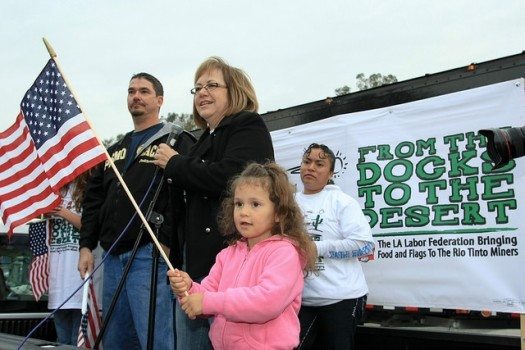

María Elena Durazo announced today that she will leave the LA County Federation of Labor, which she has led for more than eight years.
“I feel that the Los Angeles labor movement is very strong, very progressive, very proactive,” she told the Los Angeles Times. “Altogether, we have accomplished a lot. And there is a passion I have always had for immigration and civil rights. So I have the opportunity to do this and completely focus on those issues.”
Durazo will take a new post as international vice-president for immigration, civil rights and diversity at UNITE HERE, whose Los Angeles-based Local 11 she led before joining the County Fed.

A Los Angeles magazine profile last year called Durazo “the leader of what is perhaps the most robust labor movement in the country.” With her lead,
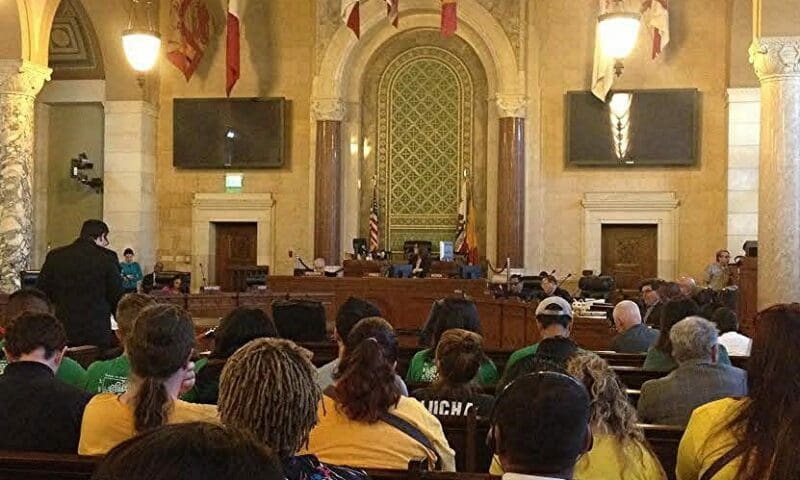
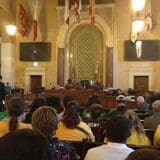
Los Angeles City Council members convened Tuesday for an Economic Development Committee hearing on a motion that would raise the minimum wage for workers in the City of Los Angeles to $13.25 per hour beginning in July 2017, and link future wage hikes to the Consumer Price Index. The motion also calls for an independent study on the economic impact of raising the minimum wage to $15.25 per hour after 2017. Councilmembers further discussed a closely related motion that would focus on the challenge of implementing and enforcing the new wage laws.
Supporters from a variety of local community and labor organizations, each wearing different colored T-shirts, showed up to back the wage increase, including from the Koreatown Immigrant Workers Alliance (KIWA), Alliance of Californians for Community Empowerment (ACCE), L.A. Black Workers Center and Restaurant Opportunities Center Los Angeles (ROC-LA), among others. The hearing, which came just a month after Council members voted to raise the minimum wage to $15.37 for certain hotel workers,
» Read more about: Citywide Wage Hike Gets First Council Hearing »


Night. In this version of the dream, the truck fishtails through the curtain of smoke and flame. Off to the right of her MRAP, the water tanker’s metal skin has split open, sending the liquid treasure everywhere. She watches in stutter shutter clicks as the vehicle’s driver fights to keep that bad boy under control, at the same time zig-zagging past the bombed, burning panel truck.
Corporal Jess Dixon is up top manning the M2 machine gun in the open turret. She swings the weapon about in tight arcs on greased ball bearings, sighting down, wishing for a target as she fires blind. The water tanker hits a slick of burning oil and, brakes screeching, flips, and tons of steel go into a slide. Over her headpiece, not the crackle of her CO, but Whitney Houston singing “It’s Not Right, But It’s Okay.” The armored vehicle clips the tanker, but that ain’t no thing,
» Read more about: The Dixon Family Chronicles: “Early in the Morning” »
If you’re looking for a real fright this Halloween season, there’s no need to find a haunted house or to visit the coffin in your neighbor’s yard. Just take a look at the independent film Plastic Paradise, The Great Pacific Garbage Patch. I saw the film recently with about 200 mostly high school and college students in Santa Monica High School’s Barnum Hall.
It’s hard to know where to start with the grossness of the plastic mass circulating in the world’s ocean gyres (the five swirling oblong currents in the furthest-most reaches of the planet’s oceans). On the Midway Atoll, one of a string of volcanic islands halfway between the U.S. and Japan, tons of old flip-flops, bottles, pacifiers, toys, sippy cups, bottle tops, garbage bags, laundry baskets and every other item of non-destructible plastic origin you can think of, washes up on the formerly pristine,
» Read more about: Film Review: Plastic Paradise, The Great Pacific Garbage Patch »
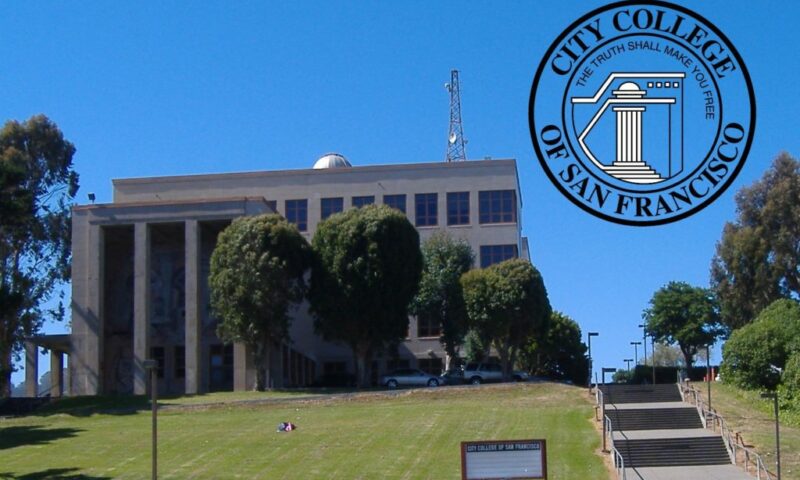

The long-anticipated trial pitting the City of San Francisco against the Accrediting Commission for Community and Junior Colleges — and its efforts to shut down the city’s storied City College — began Monday. The opening statements in San Francisco Superior Court revealed the stark difference in the way the two sides view the role of public education in society.
“This case is about fairness,” Deputy City Attorney Yvonne Mere said in her remarks, explaining that the ACCJC had far overstepped its authority by trying to revoke the school’s accreditation – and in the process deny a college education to nearly 80,000 students, many of whom come from low income backgrounds.
For its defense, ACCJC announced it had to destroy CCSF in order to save it from the ruin of pension health-care costs generated by union contracts with the school. This alarm had first been sounded by ACCJC in 2006, although it had since been muted.
» Read more about: Trial to Save City College of San Francisco Begins »

With Los Angeles Mayor Eric Garcetti and six city council members proposing an increase in the minimum wage, the issue sits firmly on the front burner of L.A. government. Of course the Chamber of Commerce and its allies wring their hands and predict disaster, and some economists are throwing scary statistics back and forth.
Will raising the minimum wage to a livable income raise prices? Probably a bit in some parts of the economy. Will people lose their jobs? Probably a few in some sectors, for a short time. Will the economy grow as a result of poor people having more income to spend? Again, probably. Will life be better for low-wage working families? Undoubtedly.
Minimum wages should provide enough income for working families to put shelter over their heads, food on their tables and clothes on their backs. Employers should pay working people enough to not require government and taxpayers to supply the basic needs of a family.
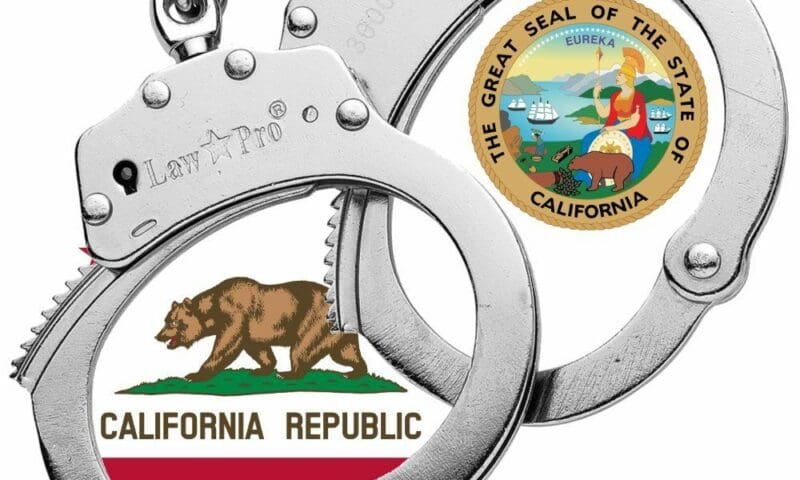


Readers of Gary Cohn’s coverage of Proposition 47 and Donald Cohen’s report on the privatizing of America’s jails and prisons will be interested in two events held in sequence this weekend.
Saturday, October 25, 9 a.m.-1 p.m. East Los Angeles College, 1301 Avenida Cesar Chavez, Monterey Park. RSVP here
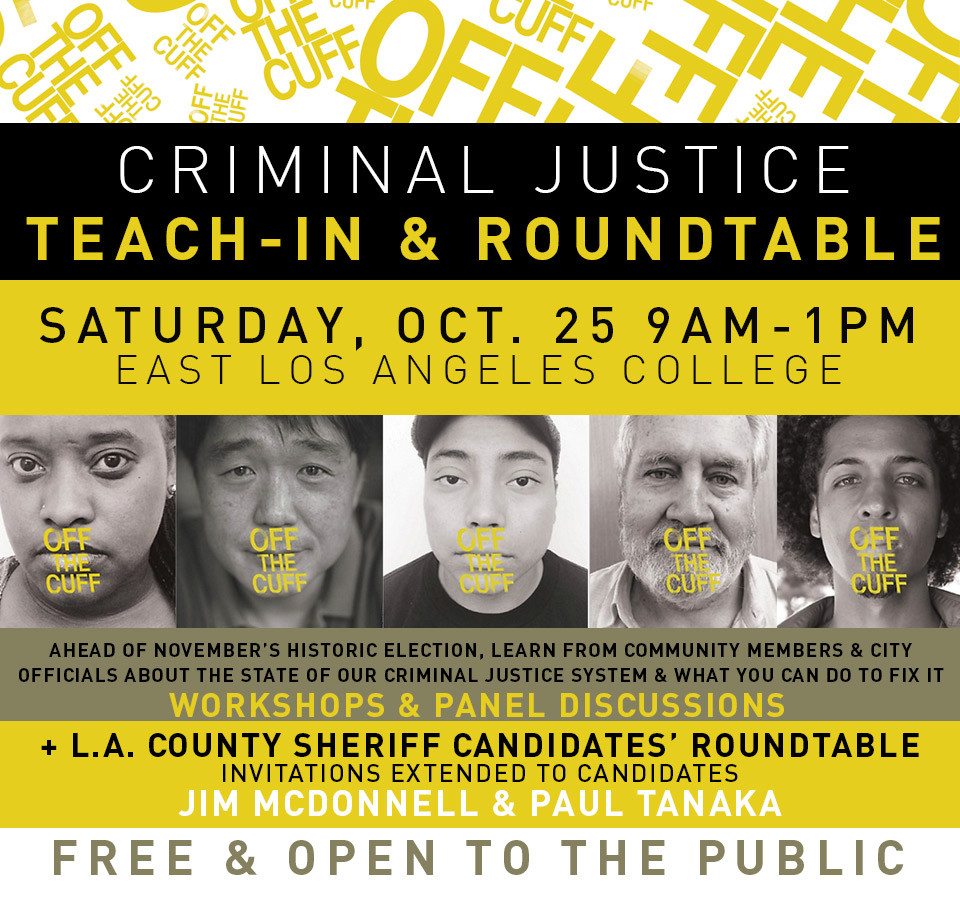
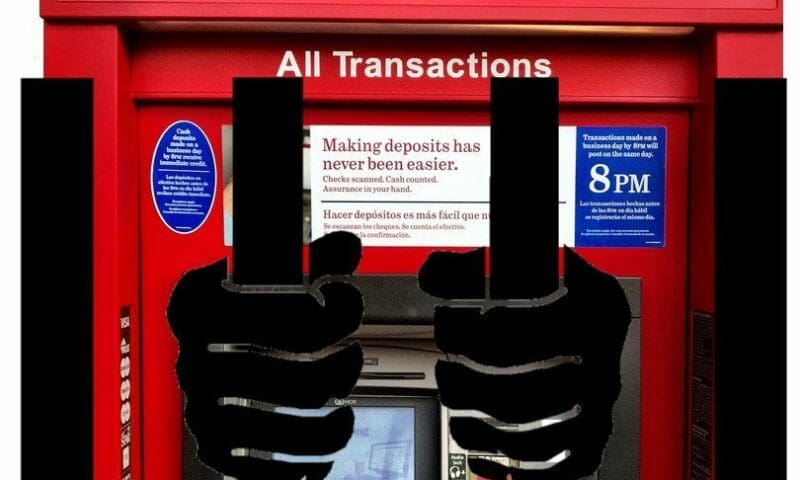

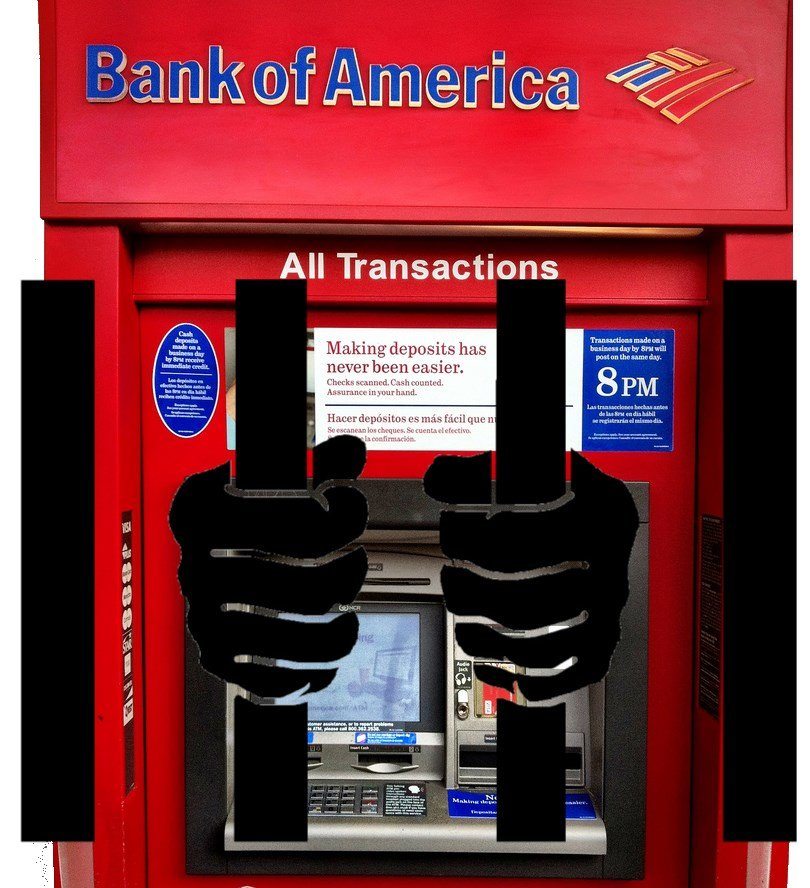
Introducing for-profit companies into America’s criminal justice system has been a bad deal for governments across the country.
During the past several years, a movement opposed to profit incentives in our criminal justice system has grown. Private prison corporations such as Corrections Corporation of America and GEO Group have come under increasing scrutiny and pressure for cutting corners, contracts that include “occupancy guarantees” of 80, 90 and even 100 percent, and unsafe prison conditions.
But it’s not just the prisons that are handed over to CCA or GEO Group. Almost every service delivered inside the prison is being outsourced to for-profit corporations. Outsourced inmate health care, food and commissary services, telephone and financial services like money transfers between families and inmates are all adding to the poor conditions in prisons and burdening inmates and their families with extra costs.
For example, earlier this month, the Palm Beach Post broke the story of the deplorable treatment of prisoners by health care contractors in Florida prisons as contractors seek to maximize profits by cutting costs.
» Read more about: For-Profit Corporations’ Prison Break-in »



Is the Pope a tease? Not really. He’s trying. He challenged the neoliberal economic system just a month into his papacy and brought up one of its difficult byproducts: growing inequality. And last week, at his recently convened synod on the family, he attempted to coax his bishops to expand their definition of the family, acknowledging yet another difficult issue: the rapidly expanding fact of gay marriage. For a brief moment, it appeared the Church was not only poised to liberalize its definition of the family, but it might even be ready to jumpstart Vatican II and go so far as to overturn one of its most cherished catechisms: denial.
It all started with an October 13 press release that included this hopeful language for LGBT Catholics (the draft was credited to a Pope Francis appointee, Monsignor Bruno Forte, a theologian known for his progressivism):
“Homosexuals have gifts and qualities to offer to the Christian community.